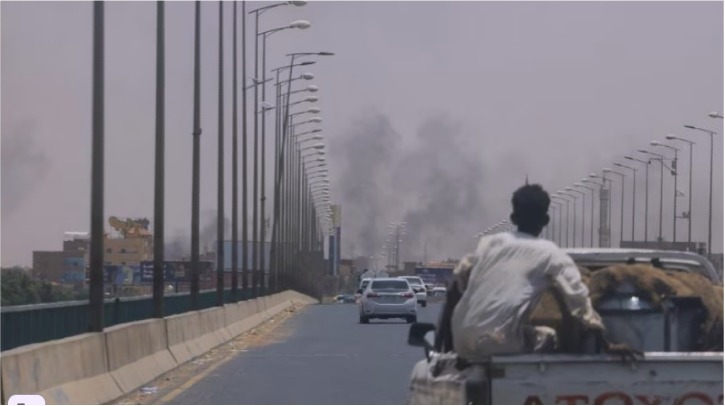
The Rapid Support Forces (RSF) announced on Saturday that they had seized control of several key sites in Sudan, including the presidential palace, the army chief’s residence, and Khartoum international airport. The paramilitary group also claimed to have taken over the airports in the northern city of Merowe and in El-Obeid in the west.
However, the Sudanese military denied the RSF’s claims and said that it was fighting back against the paramilitary group. The situation remains unclear, and there are concerns that a confrontation between the RSF and the army could lead to widespread conflict in a country already grappling with economic breakdown and tribal violence.
The clashes come amid rising tensions between the army and the RSF over the integration of the paramilitary group into the military and who should oversee the process. The disagreement has delayed the signing of an internationally backed agreement with political parties on a transition to democracy.
Civilian forces that signed a draft version of the agreement in December have called for an immediate halt to hostilities by both the army and the RSF to prevent Sudan from sliding towards “the precipice of total collapse.” The RSF has accused the army of carrying out a plot by loyalists of former strongman President Omar Hassan al-Bashir, who was ousted in 2019, and attempting a coup itself.
The RSF is headed by former militia leader General Mohamed Hamdan Dagalo, better known as Hemedti, who has been the deputy leader of Sudan’s ruling Sovereign Council, headed by army General Abdel Fattah al-Burhan, since 2019. The army has said that the Sudanese air force is conducting operations against the RSF.
Eyewitnesses have reported shooting in several parts of Khartoum, and there have been heavy weapons fire near the headquarters of both the army and RSF. A Reuters journalist saw cannon and armored vehicles deployed in the streets of the capital.
The situation is a pivotal moment in the country’s history, and there are fears that a war between the army and the RSF could destroy Sudan forever. The country has already been struggling with economic collapse, tribal violence, and political instability in the aftermath of Bashir’s ousting in 2019.
Sudan has been governed by a transitional government since then, with a power-sharing agreement between the military and civilian forces. However, the RSF has remained a powerful force in the country, and its integration into the military has been a contentious issue.
The attempted coup by the RSF is the latest challenge to Sudan’s transitional government and its efforts to move towards democracy. The country has been plagued by political instability, economic collapse, and tribal violence in recent years, and the situation remains fragile.
The international community has expressed concern about the situation in Sudan, with the United States and other countries calling for an immediate halt to hostilities and a return to the negotiating table. The African Union has also called for an end to the violence and a return to civilian rule.
The situation in Sudan remains fluid, and it is unclear what will happen next. However, the attempted coup by the RSF has raised fears of a return to the political instability and violence that have plagued the country for decades. The international community will be watching closely to see how the situation develops and whether Sudan can avoid a descent into further chaos and conflict.
